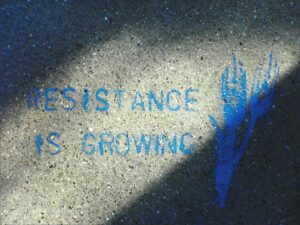Even life itself is a goal. Unconsciously your heart beats, you breathe and food & drink is turned into fuel as you digest. Their objectives are to keep you alive. To give you life. If they fail in their tasks, you’ll probably die. Throw in consciousness and we turn into goal setting and goal achievement machines. Find food, water, shelter, a mate, a friend, a purpose…..
Is a primary purpose of consciousness to enable us to create a model of the world based on sensory feedback loops to better enable us to achieve our goals? The more sophisticated the consciousness of the creature, the more sophisticated the goals it sets and attempts to achieve. A slug on Mars anybody?
Goal Setting and Goal Achievement Problems
If we accept some version of the above as true, we hit the first problem – and one of the reasons Constant Mentor exists. We don’t invest enough time in all that is required to be brilliant goal setters and goal achievers; especially not considering how important it is to us. Whether in business or in life; whether you’re rich or poor; the boss or the cleaner, you spend a ridiculously small percentage of your time in focused, deliberate practice to get better at setting and achieving your goals.
Then we hit the second problem – and another reason why Constant Mentor exists. Arguably it’s the reason for the first problem. Setting unrealistic goals and failing to achieve them is easy. It’s hard to set stretching, but realistic, goals and then really hard work to try and achieve them.
It’s at this point that I fall in love with the topic of goal setting and task achievement. It’s the ultimate human ‘gotcha’: we don’t really like hard things, and especially not if we set ourselves the hard thing to do. It’s easy to blame someone else for setting us something that is unachievable and then not do it. But if we accept that we bristle with goal setting and goal achievement ‘out-of-the-box’ tendencies, then we are at the heart of our human tension. We put ourselves under tension. We set ourselves goals and try and achieve them. We compare our performance to others and our own expectations and get disappointed. We struggle to control our motivation levels, our lack of focus, our poor attention; but we want to. WE MUST. Because we’ve put ourselves under tension. We can’t blame others.
The Social Block to Goal Setting and Goal Achievement
So, why do we spend a ridiculously small percentage of our time in focused, deliberate practice to get better at goal setting and achievement? Easy: as well as it being hard, as social creatures we’ve evolved to require accountability and to do better with others to both support us and hold us to our commitments. Unfortunately, we don’t really like that either. Looking bad in front of others is our modern day sabre-toothed tiger predator.
So what do most people do? We relax into our blind spot of discomfort. It’s easier for us to have secret goals, not know how to work at achieving them, not really do anything to achieve them and then fail and tell ourselves our usual stories to make us feel better about accepting our failure again.
The minority are the ones we admire. They set seemingly unachievable goals, work diligently and consistently achieve them. If they don’t, they try again – harder and smarter. They work with others; seeking support, and being held to their accountabilities and commitments. They get better at setting and achieving their goals, and take more on. They work with their tension, and accept it as being part of being human. Are they happier? You know how you’ll answer that.
Welcome to why Constant Mentor exists.
 Constant Mentor Goal Setting & Interventions for Leaders
Constant Mentor Goal Setting & Interventions for Leaders



